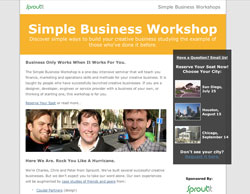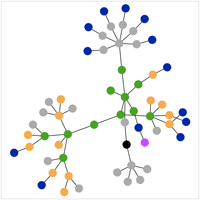These are my notes from a talk Rod Drury gave us at a recent UP event. Rod got up at the start of the presentation and basically asked for questions. It was an excellent approach and worked really well with a wide range of topics broached. Rod answered honestly and directly to the questions and it helped to give an insight into Aftermail and what it might be like to repeat that success in Wellington.
Working towards successful exits. Entrepreneurship, it doesn’t automagically happen – it’s a progression that takes a good length of time.
Why are we here? To earn cash? To amass wealth? What are the levels of wealth? House without mortgage? Cars with more than 400hp? Multi-millions sitting in the bank?
Need to find a partner for a sale: for Aftermail it was Quest.
Ideal customer? Whoever gives you the most cash the quickest.
Patents? Waste of time.
Cash flow: Profitability vs. cashability – needing cash to fund growth.
Cheap R&D: we don’t have any big software companies in NZ. As a country we are really good at starting and growing companies to the about the 60 employee mark. Don’t lament it, use it. Grow lots of companies to that mark and flip them – then start on another one.
Nerds seeing nerds and nerds talking to money.
Isolation and small size – always noted as our disadvantages. They’re also our advantages as well. Small size means we network through the industry quickly.
CASH CASH CASH CASH CASH. Single most important thing.
Get your proposal/plan/presentation/whatever down to 2 pages. Be clear and concise – don’t waste anyone’s time. An angel wants to look good in front of their group – think about it.
Where do I find these people? Network.
Get your shareholding sorted at the beginning.
No. 1 rule for software companies is to have a name starting with ‘A’.
Aftermail getting shafted by MED/Govt.
Failure and having the courage to stop.
“Some people say you need to fail to be successful – I think that’s crap”
Going from services (low barrier to entry) to product (high barrier to growth) companies.
Broadband – might get here one day but there still aren’t any applications to use it.
Vista is a trainwreck…


